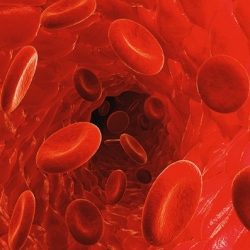
Current cancer detection methods usually rely on scans and tissue biopsies, which are time consuming, difficult and often expensive. CT scans for example can only detect relatively large tumors that are usually in advanced stages. The ability to detect cancer in the blood is a major advantage for the early diagnosis.
Tom Würdinger, lead researcher, and his team discovered that thrombocytes or platelets in the blood from cancer patients contain unique RNA markings, which helps carry out DNA’s blueprint instructions, of the specific tumor. Platelets are responsible for the proper coagulation of the blood, but recent studies show, that platelets also play an important role in tumor growth and metastasis of the cancer.
The platelets of patients with cancer cells contain unique RNA-patterns which makes it possible to distinguish between healthy individuals and people that have cancer with a 96% certainty for most types of cancer.
The researchers studied blood samples from more than 200 cancer patients which had various diagnoses and prognoses and they were able to determine not only the presence of cancerous cells, but also which type of the cancer they had and if it had metastasised to other parts of the body.
Across 6 different tumor types (pancreatic cancer, colorectal cancer ,glioblastoma, breast cancer, hepatobiliary cancer and non-small cell lung carcinoma), the origin of the primary tumor was properly identified with 71% accuracy. The platelet profiles can also help determine what type of therapy would be the best and re-analysing blood with this test at different times they can see if the treatment is effective or not.
Although this it is still in an early experimental phase, Tom’s team is currently working on a fast, cheap and usable blood test for public use that is expected to be available by the year 2020. This newly developed test has been tested on most common types of cancer and the technique provides an innovative combination of powerful computer algorithms in the diagnosis of the cancer through a single drop of blood.
